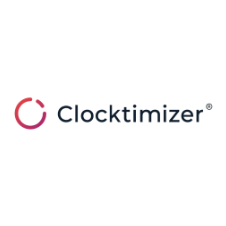Clocktimizer: Firmwide analytics and legal project management
Welcome to the third instalment in our blog series on firmwide analytics. Ask anyone who has attended a legal conference recently, and they will tell you that data is everything. From AI applications to machine learning, it all hinges on information. However, there seems to be less certainty about exactly which data everyone should be collecting. Or why for that matter… For this very reason, we at Clocktimizer will be looking at the full range of data analysis available to firms. We will be breaking down firmwide analytics by department and exploring the data to collect, the insights you can hope to gain from it, and how you can apply these learnings in your firm.
In this week’s installment we will be covering a topic close to our hearts. Legal Project Management, or LPM for short. While good business development and well-crafted fee quotes get clients in, it is good LPM that keeps them. However, without a solid foundation in data your LPM team is likely to be nothing more than a showpiece. We explore the data you need, and the tools at your disposal to truly scale LPM.
LPM needs data to scale
We have already written a full (and free) e-book about why LPM is essential for firms. In short, it keeps matters on track, it improves firm-wide profitability and it strengthens client relationships. However, LPM is often held back by the lack of data or oversight available in a firm.
Clocktimizer allowed us to understand what work has been done, who is doing it and what timeframe was involved.
Bart Gabler, CIO K&L Gates
Clocktimizer is a tool designed to enable LPM to scale in firms. What follows is a short case study on the data our clients regularly use and the types of insights it can offer. It should act as a guide to the type of data and level of analysis essential in LPM.
1: Managing a matter
Can your firm get answers to the following questions in less than fifteen minutes?
How many matters do you have running for your biggest client?
Which practice group submits the most hours?
How long did due diligence take for your last matter?
Who logged the most hours in your last completed matter?
If not, you need to improve your matter management data. Legal Project Management, at its core, is about successfully running a matter. To do that, you need to have complete oversight of matters in a quick, easy to understand way. At Clocktimizer, we collect this data from timecards. By reading and analysing the narrative itself, rather than relying on (often inconsistently applied) codes, we can ensure that our matter data is as accurate as possible.
The essential matter management data must include detail on the following areas:
Who is working on the matter
What activities they are logging to the matter
How long these activities are taking
What seniority level these individuals belong to
What practice groups these activities fall under
What phase of the matter these activities were performed in
What client the matter is assigned to
This list is not exhaustive but comprises the minimum amount of information necessary to understand a matter. Most firms already hold the majority of this data in some form or other. Importantly, all of this information should be available in real time. Without this, your project managers will always be working to a disadvantage. Projects will be able to run over budget, or off course, before the LPM has any idea.
2: Financial matter data
As LPM has grown in law firms, so has the amount of data necessary to support it. Currently, good LPM is about more than managing matters. With the rise in fee quotes, and the increasing complexity of client needs, LPM must also keep matters on budget and in scope. This means the marrying of financial data, with matter data. In Clocktimizer, we do this with the creation of bespoke budgets. These can then automatically track work and set alerts when work exceeds the limits of the budget.
It is easiest to work out what data you need to collect, if you think about things which could fall out of scope. Out of scope work (either because it didn’t need to be done, or because the budget has run out) leads to write-offs for law firms. By giving LPMs notifications when out of scope work has happened, your firm can avoid write-offs. At Clocktimizer we offer the following notifications:
Budget alerts for either entire matters, or by phase or task to notify when 50%, 75% and 100% of the budget has been used up
Scope alerts for tasks, specific timekeepers or even seniority levels when hours are logged under a matter incorrectly (e.g. when Senior Partners log hours under due diligence)
3: Process improvement data
The final aspect of good LPM, is in improving processes. Again, this requires a solid foundation in data. After all, without data you cannot identify which processes need improving, or test whether your improvements were successful. To achieve this, you need your data collection to be consistent, so you can compare it across matters.
An essential step before the analysis portion is to determine the quality of your data collection. If you rely on codes (as we discuss in this blog) consider whether these codes are applied consistently? If they are not, then comparative analysis is likely to be unsuccessful.
Secondly, it is important to identify your goals before using LPM data to improve processes. Do you want your processes to be faster? Or do you want them to cost less? Do you want to automate repetitive tasks? Or do you want to identify and upsell work which is most profitable for the firm? Once you have determined your goals, you can collect data which supports them. Note that the majority of the data needed to realise most of these goals is already housed in time card data.
At Clocktimizer, we use our comparison tool to support goals like these. You can compare the cost or profitability of relative tasks, or of different matters. You can also see how long tasks take on average. Once you have identified the area you wish to improve, you can then compare old data with the new to see whether your changes have been successful. Again, for more detail on how data can support the scaling of LPM, download our free e-book.
Next week
In the next installment of our firmwide analytics series, we look at pricing. What sort of data should you have? How can you put together a good fee quote? And how can you improve your firm’s profitability?



